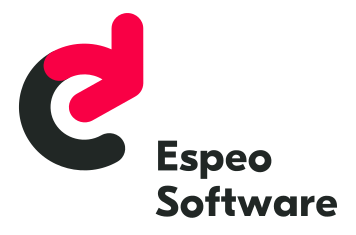Recently I had a chance to participate in two healthcare technology industry events. Both took place in London. Since Espeo Software is quite active in healthcare technology projects, I couldn’t miss the opportunity to see what’s trending on in this part of the tech scene. I looked forward to checking the climate around blockchain technology adoption and perspectives in the healthcare industry. Why? Because in Espeo we believe that blockchain a great potential to disrupt the way patients and healthcare organizations manage the health data.
HETT Show
The first event — HETT Show — was a big gathering of the British digital health community. Developers, suppliers, national bodies, practitioners – they all have own perspectives of healthcare and such conferences create good opportunities to talk about what they do and discover what solutions are out there. I had a chance to talk with several attendees. Nice for me was that everyone was keen to learn about the various applications of blockchain in healthcare. On the other hand, Espeo was the only company at the event that really was able to demonstrate the practical experience in this field, just to name our implementation of medical information storage and sharing on top of Hyperledger Fabric or cooperation with GHP.
People I talked with admitted that blockchain topics were more prevalent the year before and it seems to be highly dependent on the crypto hype we saw between 2017 and 2018. However, the current silence around blockchain in healthcare doesn’t mean it’s a dead end. Basically, the biggest players in the British healthcare market are a few days late with the newest technologies. It’s enough to say that the UK’s National Health Service started moving their data to the cloud only in 2018. It may be surprising, but this example shows the pace of technology adoption in this industry. Also, product companies are more eager to explore AI techniques to analyze medical data and generate actionable insights for their users. They consider blockchain like any other layer of trust and security when managing and storing medical records.
Healthcare Unblocked

The second event — Healthcare Unblocked — shed some light on what is happening in the healthcare blockchain initiatives behind the scenes. The conference focused specifically on blockchain topics and this made the discussions and panels very insightful. The panel about medical data sharing pointed the discussion to the topic of consent given by patients to access their data. The democratization of access to medical records is now becoming a reality and blockchain technology can be a catalyst for change here.
Like with the open banking approach, where third party services share client’s banking and financial data, it might take a few years to adopt patient-centric medical records, but we can already see big players preparing themselves to the new business opportunities. Big Pharma and healthcare companies partner up with technology providers to secure their positions in the blockchain race. Only in 2019, several big initiatives were launched, for instance, Mellody, MediLedger, Coalesce or Health Utility Network.
Another trend in the sector indicates the medical supply chain as a place where blockchain can be beneficial. It only supported Espeo’s choices in blockchain use case exploration, because earlier this year we implemented a prototype of the Ethereum-based mobile service for checking drug authenticity.
New business models around blockchain-enabled healthcare will emerge as a result of the transition from a passive role in health to a more active one. Dr. Alex Cahana pointed out that healthcare data will be passively collected by wearables. Having rich datasets, healthcare providers will be able to detect anomalies and propose actions aimed at reducing the spread of disease.
Takeaways
The value of patient’s data, including DNA information, will grow as well. Patients should be educated about how to share, manage and secure their data. Nowadays, data is becoming a new currency, because you want to keep it, use it, spend it and be in charge of your own data. Patient-centric blockchain-enabled platforms, such as GHP which is being conceptualized by Espeo, will allow for the democratization of medical records.
However, for now, we must be aware that blockchain adoption in the healthcare space will take some time. According to Dr. Cahana, use cases for blockchain will start as a pilot project aimed at process excellence. The end game is where the patients will have full control over their medical data.





